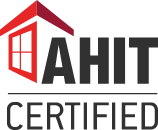- Book your home inspection online today and save $25 on your next inspection! BOOK NOW!
-
 (347) 286-8696
(347) 286-8696
 clientcare@csicertified.com
clientcare@csicertified.com
 (347) 286-8696
(347) 286-8696
 clientcare@csicertified.com
clientcare@csicertified.com

By Admin Monday May 20, 2024
Buying a home is a thrilling journey, but it can also be fraught with challenges, especially for first-time buyers. One of the most crucial aspects of the home-buying process is ensuring that the property you’re eyeing is in good condition. From structural issues to hidden problems, there are various factors to consider before sealing the deal. Here, we’ll explore 20 common problems that home buyers should be vigilant about when navigating the real estate market.
Faulty Wiring: Outdated or faulty electrical wiring can pose serious safety hazards. Look out for flickering lights, sparking outlets, or frequently tripped circuit breakers.
Plumbing Problems: Leaky pipes, low water pressure, and drainage issues are red flags that could indicate plumbing problems. Check for signs of water damage in ceilings, walls, and floors.
Roof Damage: A damaged roof can lead to costly repairs. Look for missing or broken shingles, water stains on the ceiling, or signs of sagging.
Foundation Issues: Cracks in the foundation or uneven floors may signal structural problems. Hire a professional inspector to assess the foundation’s integrity.
Mold and Mildew: Excessive moisture can lead to mold and mildew growth, which can affect indoor air quality and cause health problems. Check for musty odors and visible signs of mold in bathrooms, basements, and crawl spaces.
Pest Infestations: Termites, rodents, and other pests can cause extensive damage to a home. Look for signs of infestation such as droppings, chewed wood, or nests.
HVAC System Malfunctions: A malfunctioning heating, ventilation, and air conditioning (HVAC) system can result in discomfort and high energy bills. Test the HVAC system during a home inspection to ensure it’s in good working condition.
Poor Insulation: Inadequate insulation can lead to temperature fluctuations and higher energy costs. Check for drafts around windows and doors, and ask about the home’s insulation levels.
Structural Damage: Cracks in walls, sloping floors, or doors that stick could indicate structural issues such as settlement or foundation problems.
Water Damage: Water damage can cause rot, mold, and decay. Look for water stains on ceilings, walls, and floors, and investigate the source of the moisture.
Faulty Appliances: Appliances that are old or in poor condition may need to be replaced soon after purchasing the home. Test appliances during a home inspection to ensure they’re in good working order.
Poor Drainage: Improper drainage around the property can lead to water pooling and flooding. Look for signs of water damage in the yard and basement, and ensure that gutters and downspouts are functioning properly.
Unsafe Neighborhood: Research the neighborhood for crime rates, proximity to schools and amenities, and overall safety. Visit the area at different times of day to get a feel for the community.
Environmental Hazards: Be aware of any environmental hazards in the area, such as pollution, proximity to industrial sites, or natural disaster risks like flooding or wildfires.
Zoning Restrictions: Check local zoning laws and regulations to ensure that the property meets your needs and future plans, whether it’s for residential or commercial purposes.
Structural Modifications: Be cautious of any structural modifications or additions made to the property without proper permits or inspections, as they may not meet building codes.
Radon Gas: Radon is a radioactive gas that can seep into homes through cracks in the foundation, leading to health risks. Consider testing for radon during the home inspection process.
Lead Paint: Homes built before 1978 may contain lead-based paint, which can pose health risks, especially to children. Hire a professional to test for lead paint and take necessary precautions.
Asbestos: Older homes may contain asbestos in insulation, flooring, or ceiling tiles, which can pose serious health risks if disturbed. Have the home inspected for asbestos by a qualified professional.
Homeowners Association (HOA) Restrictions: If the property is part of a homeowners association, be aware of any restrictions or fees associated with membership, as they can impact your lifestyle and budget.
Navigating the home-buying process can be overwhelming, but being aware of these common problems can help you make informed decisions and avoid potential pitfalls. Remember to conduct thorough inspections, ask questions, and seek professional guidance when needed. With careful planning and attention to detail, you can find the perfect home that meets your needs and budget while minimizing future headaches.






Reach out to us upon putting an offer on a new home. We will connect with you at our earliest to schedule a date for the home inspection and discuss your requirements. If we are unable to schedule an inspection on your preferred date, we’ll work out to pick another available date at your convenience.
For any inquiries or concerns regarding the inspection, please feel free to contact us. We’ll be ready to address all your concerns.
TEL : (347) 286-8696

Clear Sight Inspections is a veteran-owned company. We aren't afraid of a little hard work, and we are willing to put in the effort no matter the circumstances. Through our home inspection services, we continue to serve our community and put that experience to work for you.